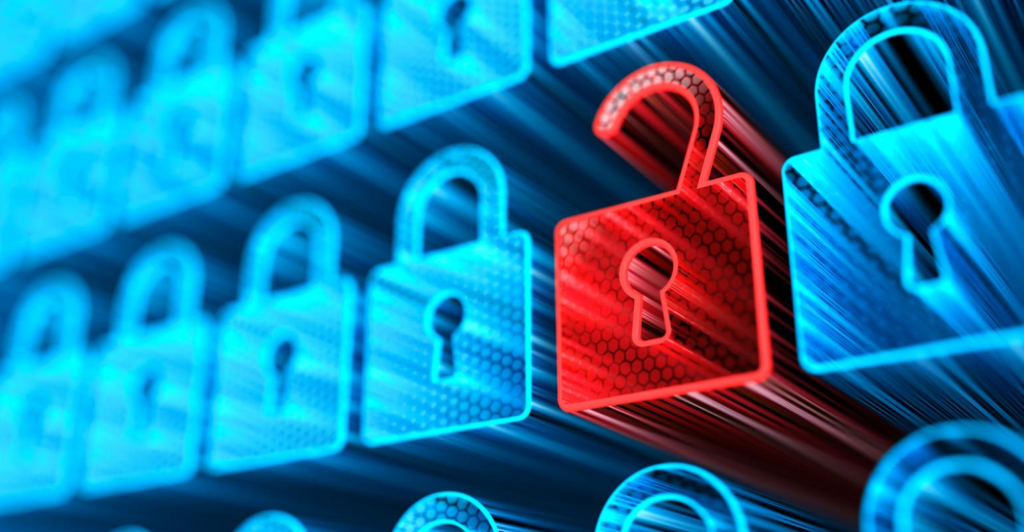In today’s digital age, where our lives are heavily reliant on technology, it is crucial to prioritize cybersecurity. Cyber threats constantly evolve, and individuals and organizations must stay vigilant and take proactive measures to protect themselves from potential breaches. Unfortunately, many people make common cybersecurity mistakes that leave them vulnerable to attacks. In this article, we will explore the five most common cyber security mistakes and provide actionable tips to avoid them.
Table of Contents

Passwords
One of five cyber security mistakes is the most prevalent mistakes people make, using weak passwords. Weak passwords are easily guessable and can be cracked by hackers using various methods, such as brute force attacks. It is crucial to create strong passwords that are unique for each online account. A strong password typically includes a combination of upper and lowercase letters, numbers, and special characters. Additionally, using a password manager can help generate and store complex passwords securely.
Best Password Manager to store passwords!
Lack of Regular Updates
Failing to update software and applications regularly is another common mistake that exposes individuals and organizations to cyber threats. Software updates often include critical security patches that fix vulnerabilities discovered by developers. Ignoring these updates leaves your systems and devices susceptible to exploitation by hackers. Enable automatic updates whenever possible and regularly check for updates manually to ensure your software is up to date.
Why Software Updates are Important?
Phishing Attacks
Phishing attacks are a prevalent form of cybercrime that tricks individuals into revealing sensitive information, such as usernames, passwords, or credit card details. Attackers often impersonate reputable organizations or individuals through emails, messages, or phone calls to deceive victims. To avoid falling prey to phishing attacks, be cautious of unsolicited emails, verify the legitimacy of requests before sharing any personal information, and enable email filtering systems to detect and block phishing attempts.
Neglecting Backup and Recovery
Neglecting to back up essential data is a grave mistake that can lead to significant losses in a cyberattack. Ransomware attacks, for example, can encrypt your files and demand a ransom for their release. Regularly backing up your data and storing it securely, either offline or using cloud services, ensures that you can restore your information in case of a breach or system failure.
Not Using Multifactor Authentication
The last of the five cyber security mistakes is that many individuals still rely solely on passwords for account security, which increases the risk of unauthorized access. Utilizing multifactor authentication adds an extra layer of protection by requiring additional verification steps, such as a fingerprint scan, facial recognition, or a unique code sent to your mobile device. Implementing multifactor authentication significantly reduces the chances of unauthorized access even if your password is compromised.
Learn more about Multifactor Authentication!
Conclusion
As technology continues to advance, so do cyber threats. It is essential to educate ourselves and be aware of the common cyber security mistakes that can leave us vulnerable to attacks. By avoiding weak passwords, regularly updating software, being cautious of phishing attempts, backing up data, and utilizing multifactor authentication, we can enhance our cybersecurity posture and protect our digital lives from potential threats.
FAQs
How can I create a strong password?
To create a strong password, use a combination of upper and lowercase letters, numbers, and special characters. Avoid using easily guessable information like your name or birthdate.
Why are software updates important for cybersecurity?
Software updates often include critical security patches that fix vulnerabilities. Ignoring updates leaves your systems susceptible to exploitation by hackers.
What is phishing, and how can I avoid it?
Phishing is a type of cyber attack where attackers trick individuals into revealing sensitive information. Be cautious of unsolicited emails and verify the legitimacy of requests before sharing personal information.
Why is data backup important?
Neglecting to back up data can lead to significant losses in a cyberattack. Regularly backing up data ensures that it can be restored in case of a breach or system failure.
How does multifactor authentication enhance security?
Multifactor authentication adds an extra layer of protection by requiring additional verification steps. Even if your password is compromised, unauthorized access is significantly more difficult.

